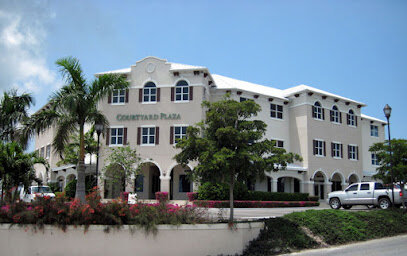Best Conveyancing Lawyers in Turks and Caicos Islands
Share your needs with us, get contacted by law firms.
Free. Takes 2 min.
Free Guide to Hiring a Real Estate Lawyer
Or refine your search by selecting a city:
List of the best lawyers in Turks and Caicos Islands
About Conveyancing Law in Turks and Caicos Islands
Conveyancing is the legal process of transferring property ownership from one party to another. In the Turks and Caicos Islands, conveyancing is a highly regulated process involving specific legal procedures, documentation, and due diligence. This process ensures that the buyer receives valid title to the property, free of encumbrances, and that the interests of all parties are protected. Whether you are buying, selling, or mortgaging property, understanding the conveyancing framework is essential to avoid unnecessary risks and complications.
Why You May Need a Lawyer
There are several situations in the Turks and Caicos Islands where the assistance of a qualified lawyer experienced in conveyancing is crucial. These include:
- Buying residential, commercial, or vacant land property
- Selling real estate and ensuring all tax and legal obligations are met
- Mortgaging property or refinancing existing mortgages
- Dealing with property inheritance or transfers resulting from divorce or gifts
- Resolving boundary disputes or title defects
- Conducting due diligence before any real estate investment
- Navigating land registry requirements and government approvals specific to the islands
A conveyancing lawyer can guide you through the necessary steps, help you avoid pitfalls, and ensure compliance with all local laws and regulations.
Local Laws Overview
Conveyancing in the Turks and Caicos Islands is governed by a mix of local statutes and English common law principles. Some of the key aspects of the local legal framework include:
- Land Registration: All land in the Turks and Caicos Islands is registered at the Land Registry. The registry operates a title registration system, meaning ownership and interests in land are clearly recorded and protected by law.
- Due Diligence: Lawyers must conduct thorough searches, including checking for title defects, outstanding mortgages, liens, and any restrictive covenants.
- Government Approvals: Foreigners can purchase property, but some transactions may require approval from the Turks and Caicos Islands Government, especially for certain types or values of property.
- Stamp Duty: Buyers are usually required to pay stamp duty based on the purchase price, with rates depending on the location and value of the property.
- Taxation: There is no annual property tax, capital gains tax, or inheritance tax, but specific transaction-related taxes and fees are applicable.
- Professional Representation: Only licensed attorneys can conduct conveyancing, prepare and submit transfer documents, and interact with governmental authorities on behalf of clients.
These local legal foundations ensure property transactions are secure, transparent, and binding.
Frequently Asked Questions
What is conveyancing?
Conveyancing is the legal process of transferring ownership of property from one person or entity to another, involving a series of checks, documentation, and official registrations.
Can foreigners buy property in the Turks and Caicos Islands?
Yes, foreigners can buy property in the Turks and Caicos Islands. There are no restrictions on foreign property ownership, but government approval may be needed for certain transactions.
What costs should I expect when buying property?
Buyers are responsible for stamp duty, legal fees, due diligence costs, and registration fees. Stamp duty rates vary depending on the property’s location and value.
How long does the conveyancing process usually take?
Typically, a straightforward residential property transaction can take between four to eight weeks from the signing of the offer to completion, provided there are no complications.
Is property ownership freehold or leasehold?
Most property in the islands is freehold, giving the owner permanent and absolute tenure of the land. Some properties, however, may be leasehold, especially in resort developments.
Do I need to be present in the Turks and Caicos Islands to complete the purchase?
No, a buyer does not need to be physically present. Most transactions can be handled remotely with the assistance of a local lawyer, through power of attorney arrangements.
Are there any taxes on property ownership?
There is no annual property tax, capital gains tax, or inheritance tax in the Turks and Caicos Islands. Stamp duty is the primary tax associated with property transactions.
What due diligence is carried out during conveyancing?
A lawyer will conduct title searches, check for outstanding mortgages and liens, investigate planning permissions, and ensure there are no binding restrictions or disputes attached to the property.
Can I get a mortgage as a non-resident?
Yes, mortgages are available to foreigners from several local and international banks, subject to the bank’s lending criteria and property valuation.
What happens after the property is transferred?
Once the transaction is complete, the buyer’s title is registered in the Land Registry. The lawyer will provide the new owner with the registered title deed and confirm ownership.
Additional Resources
If you require legal advice or further information about conveyancing in the Turks and Caicos Islands, the following resources can be helpful:
- The Turks and Caicos Islands Land Registry - for property records, title searches, and registration requirements
- The Bar Council of the Turks and Caicos Islands - for finding a list of licensed local attorneys
- The Governor’s Office - for information regarding foreign property ownership and government approvals
- Local banks and mortgage providers - for guidance on property financing
- Turks and Caicos Islands Government - for updates on laws and policies affecting land and property
Next Steps
If you are considering buying, selling, or mortgaging property in the Turks and Caicos Islands, it is important to consult an experienced conveyancing lawyer early in the process. Take the following steps:
- Gather all relevant documents regarding the property
- Make a list of your questions and concerns
- Contact a reputable local law firm specializing in property law
- Discuss your objectives and any specific issues related to your transaction
- Follow your lawyer’s advice on due diligence, legal requirements, and financial considerations
With the right legal guidance, you can navigate the conveyancing process confidently and protect your interests when dealing with property transactions in the Turks and Caicos Islands.
Lawzana helps you find the best lawyers and law firms in Turks and Caicos Islands through a curated and pre-screened list of qualified legal professionals. Our platform offers rankings and detailed profiles of attorneys and law firms, allowing you to compare based on practice areas, including Conveyancing, experience, and client feedback.
Each profile includes a description of the firm's areas of practice, client reviews, team members and partners, year of establishment, spoken languages, office locations, contact information, social media presence, and any published articles or resources. Most firms on our platform speak English and are experienced in both local and international legal matters.
Get a quote from top-rated law firms in Turks and Caicos Islands — quickly, securely, and without unnecessary hassle.
Disclaimer:
The information provided on this page is for general informational purposes only and does not constitute legal advice. While we strive to ensure the accuracy and relevance of the content, legal information may change over time, and interpretations of the law can vary. You should always consult with a qualified legal professional for advice specific to your situation.
We disclaim all liability for actions taken or not taken based on the content of this page. If you believe any information is incorrect or outdated, please contact us, and we will review and update it where appropriate.
Browse conveyancing law firms by city in Turks and Caicos Islands
Refine your search by selecting a city.















